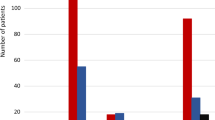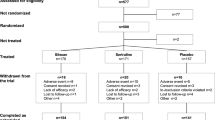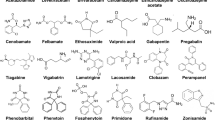Abstract
The recurrence rates during lithium preventive treatment were investigated in a sample of 270 Mood Disorder subjects subdivided according to their onset time for lithium prophylaxis as very early (within 5 years from the onset of illness), early (6–10 years), late (11–20 years) and very late (more than 21 years). 131 subjects of the sample followed for 4 years prolonged the observation for a further period of 8 years. Results indicated that beginning lithium therapy within the first ten years of illness predicts better preventive outcomes than beginning prophylaxis later, both in major depression, recurrent and bipolar patients.
Similar content being viewed by others
Author information
Authors and Affiliations
Additional information
Received: 3 August 1998 / Accepted: 23 June 1999
Rights and permissions
About this article
Cite this article
Franchini, L., Zanardi, R., Smeraldi, E. et al. Early onset of lithium prophylaxis as a predictor of good long-term outcome. European Archives of Psychiatry and Clinical Neurosciences 249, 227–230 (1999). https://doi.org/10.1007/s004060050091
Issue Date:
DOI: https://doi.org/10.1007/s004060050091




